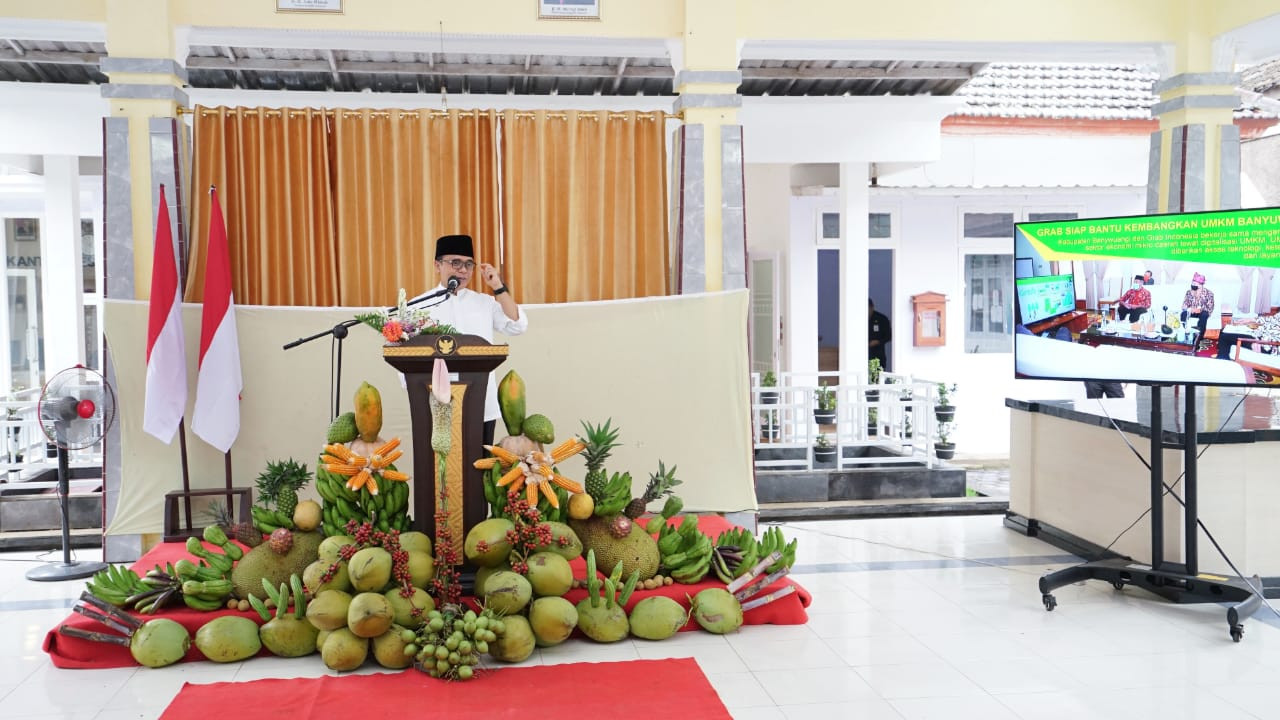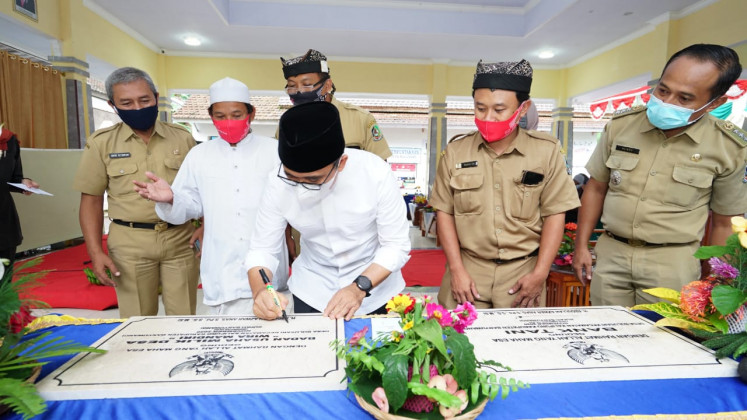Popular Reads
Top Results
Can't find what you're looking for?
View all search resultsPopular Reads
Top Results
Can't find what you're looking for?
View all search resultsBanyuwangi’s agricultural bank seeks to improve farmers’ welfare
Change text size
Gift Premium Articles
to Anyone
T
he Banyuwangi regency administration in East Java has launched a bank tani (agricultural bank) that allows farmers to get the products they need for their farming activities, ranging from seeds and fertilizers to heavy equipment such as tractors and other farming tools, to improve their welfare when they have no cash ready at hand.
In this manner, the bank tani system differs from that of traditional lenders.
The agricultural bank also differs from traditional lenders in a sense that instead of requiring farmers to pay for the equipment in cash, they are instead encouraged to pay for the equipment using their harvest. By adopting this system, the regency hopes to also motivate local farmers to improve their productivity.
For example, if farmer needs to get fertilizer but he has no money to purchase it, they can simply get the fertilizer from the agricultural bank. The price of the fertilizer will be converted to amount of produce the farmer would need to give the bank at a later time.
Banyuwangi Regent Abdullah Azwar Anas inaugurated a bank tani on Monday in Bulusari village, Kalipuro district.
Kalipuro district head Hendry Suhartono said more agricultural banks will be opened across the district and incorporated into farmer empowerment programs as well.
Bulusari village head Mukhlis added that the agricultural banks also filled the availability gap of traditional markets in the area.
“All this time, not even one traditional market exists in Bulusari village where the locals can buy and sell agricultural produce. As a consequence, oftentimes, the farmers’ harvest doesn’t get distributed properly and the tengkulak [village-level middlemen] often use this vacuum [to take advantage of farmers],” Mukhlis said.
Kalipuro Villager Empowerment and Social Welfare Improvement section head Eko Mulyanto, meanwhile, said the bank would supplement its lending activities with mentoring programs, helping farmers cultivate their commodities effectively.
“For instance, if a farmer asks for corn seed when corn is not expected to be a popular commodity in the months to come, we will suggest a better crop that is currently in high demand, such as bananas,” he said.
By focusing on commodities that are popular among buyers, farmers could collect enough produce to give back to the bank when the time comes to pay their debt.
. (Courtesy of Pemkab Banyuwangi/.)But where does the bank get the funds it needs to procure the products, tools and equipment that local farmers need? For one, bank has secured initial capital from village-owned businesses (BumDES).
“In addition to that, the agricultural bank is also developing farm land. Besides using the land to get additional income, we also use it to empower farmers who have no land. Currently, we are running village-owned land spanning 3.7 hectares,” Eko said.
Meanwhile, Anas also welcomed the Bulusari village’s agricultural innovation. He said he hoped that the newly opened agricultural bank would expand its activities to benefit more farmers.
“The regional administration will support innovative solutions to bolster the welfare of farmers in villages. Hopefully, we can implement this agricultural bank program successfully so we can replicate it in other villages,” he said.











